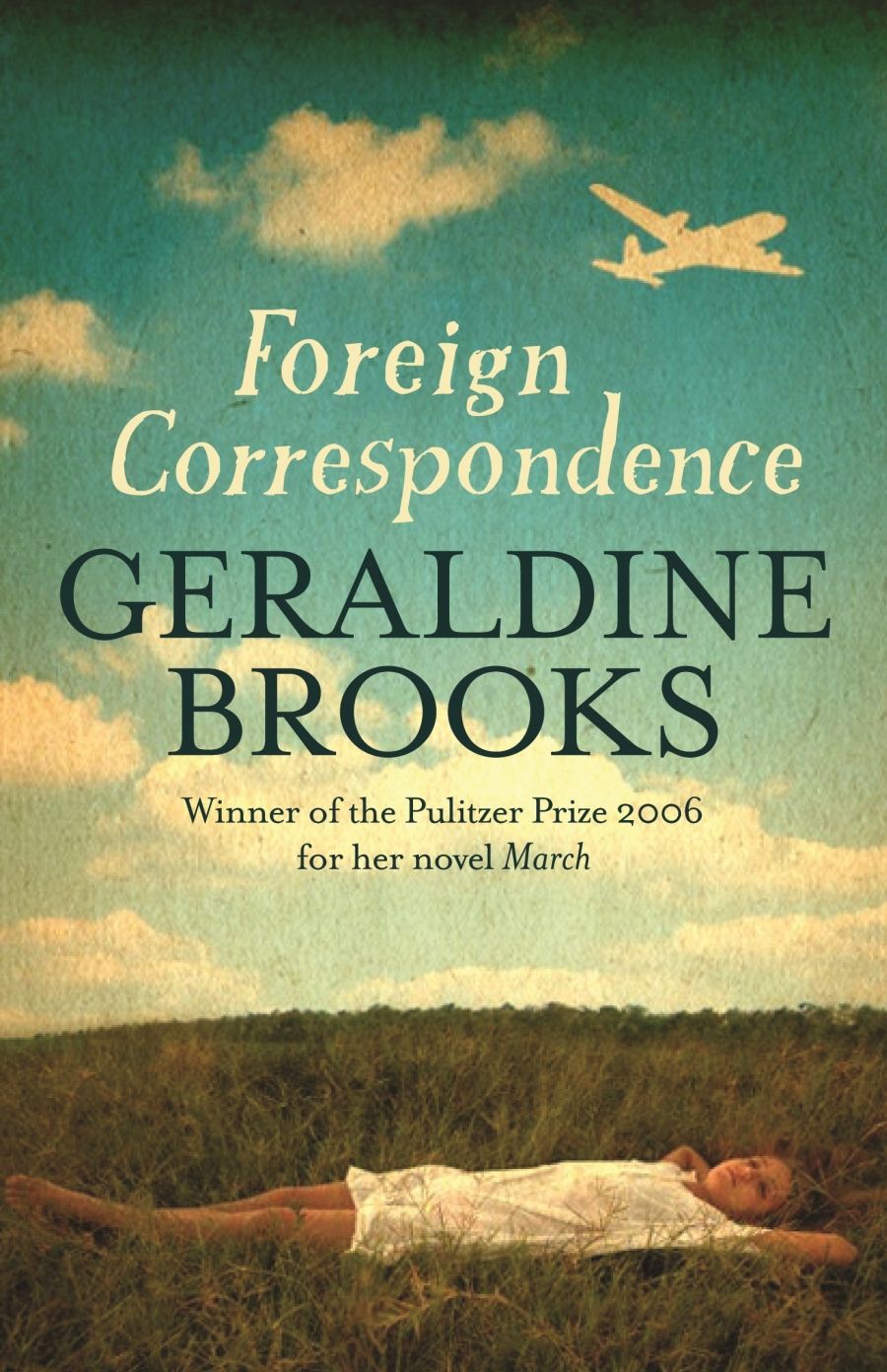
- Free Article: No
- Contents Category: Memoir
- Review Article: Yes
- Online Only: No
- Custom Highlight Text:
When Geraldine Brooks went through her father’s possessions after his death, she found the bundles of letters which prompted her to write Foreign Correspondence. Lawrie Brooks had been in the habit of writing to politicians and intellectuals with ideas and questions, and he had kept all their replies. Each letter, Brooks reflects, is ‘a small piece of the mosaic of his restless mind’. Because her father hoarded his past in photographs and newspaper clippings as well as letters, she had the makings of an intimate portrait of a reserved and unhappy man.
- Book 1 Title: Foreign Correspondence
- Book 1 Biblio: Anchor, $17.95 pb, 244 pp, 1 86359 132X
At the age of five, Geraldine was found to have a rare blood disorder. She had three years out of school, during which her mother was her chief companion, her teacher, and the awakener of her imagination. This period of isolation was crucial in developing a reflective intelligence. Set apart from other children by her precarious health, she became an observer of people and places. From the Sydney suburb of Concord in the 1950s and 1960s, sharply evoked in these pages, Geraldine Brooks began to look for wider worlds. Unlike most of her contemporaries, who saw Britain as the place to fulfil ambitions, she looked to the United States. As a child, her heroes were President Kennedy and the crew of the Enterprise in the television series Star Trek. At Sydney University, she was bored by Arts subjects but found stimulus in the Department of Government. Later, having worked on The Sydney Morning Herald, she won a scholarship to New York’s Columbia University to study journalism. Since then she has made her name as a foreign correspondent, covering the Arab-Israeli conflicts, riots in Jordan, famine in Africa. She now lives in the Blue Ridge Mountain region of Virginia.
Since the 1960s, Australian autobiographers have written memorably about childhood in suburbia. Barry Humphries, Germaine Greer, and Clive James led the attack. Dull, drab, narrow-minded, monotonous, the Australian suburb prompts rebellion and escape. From Hal Porter writing in 1963 to Andrew Riemer more than two decades later, the sense of an imprisoned self is dominant. Jill Ker Conway’s loving evocation of the outback is counterbalanced by the revulsion she feels for lower-middle-class Sydney. Brooks, born in 1956, concedes the limitations of mid-century Australia, but is sharply critical of the ‘intellectual chic’ of suburban stereotyping. She recalls being ashamed of her mother’s set of plaster flying ducks; today, she is more ashamed of her own snobbishness. Her book sets out to revise some suburban myths.
When she chose her first penfriends, Geraldine Brooks was looking for idealised national types. She describes the series of comic reversals in which her romantic expectations failed. Her French correspondent wasn’t a Left Bank intellectual, but a prim provincial. Hoping for a Jewish freedom fighter with whom she might fall in love, she was disappointed to hear from an Israeli Arab and later from a Jewish boy whose only interest was sport. Only the letters from her American friend Joanie seemed to open up a wider world. Idealising this privileged, intelligent adolescent, Geraldine missed the signals of tragedy. When Joanie wrote openly about her anorexia, Geraldine did not want to hear.
Joanie was dead, and the other correspondents were half forgotten when Brooks found the package of their letters. She decided to seek out the survivors and to see Joanie’s mother. Her encounters with the middle-aged penfriends brought another series of reversed expectations: again she was forced to revise her judgments. The quest took her to Martha’s Vineyard and Nazareth, and to towns near Aix en Provence and Tel Aviv. In New York she met her North Shore penfriend, Sonny ‘Little Nell’ Campbell who had become a celebrity as a dancer and nightclub owner. The two women talk wistfully of Sydney. True to the pattern of this book, Nell remembers the freedom of a ‘perfect childhood’.
As a way of structuring the autobiography, the double discoveries of the ‘foreign correspondents’ work well. Geraldine Brooks tells her story engagingly and there’s an adroit management of narrative suspense as she pursues her past. And yet – isn’t the pattern of reversals just a bit too neat? The ending, with fantasies exposed, wisdom gained, acceptance of past and present seemingly complete, is not quite convincing. Ingeniously shaped but emotionally unsatisfying, the quest for the penfriends seems a diversion from a personal story which Brooks leaves undeveloped.


Comments powered by CComment